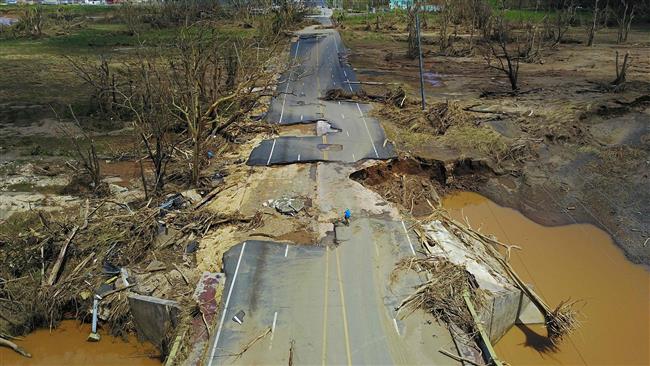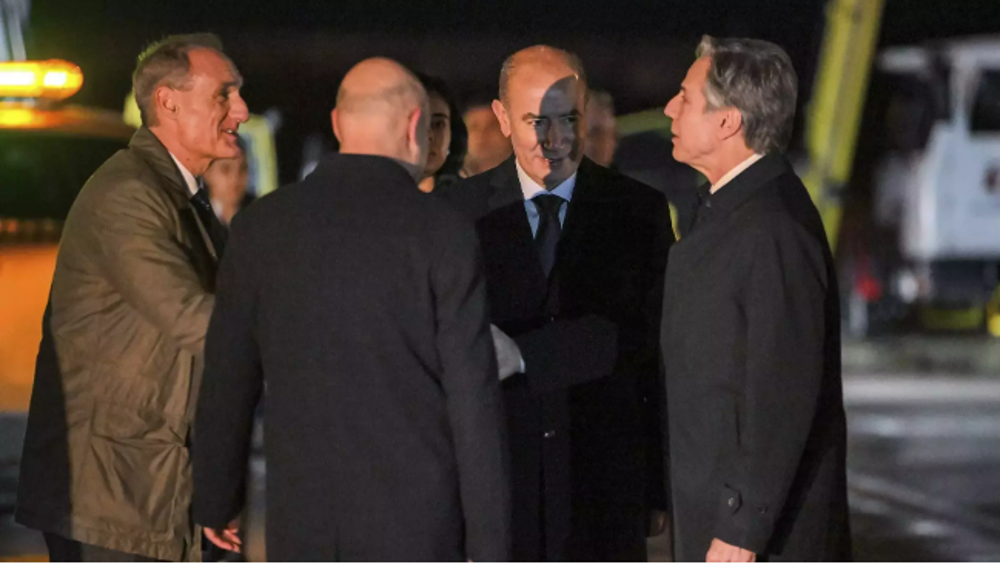UN experts decry US response to Puerto Rico hurricane
United Nations human rights experts have issued a joint statement denouncing the "absence of adequate emergency response" by the Trump administration in Puerto Rico, an island territory of the United States devastated by Hurricane Maria.
"Thousands of people are displaced, with homes destroyed, and without any relief in sight," eleven UN experts noted. "More than 80 percent of the population, or close to 2.8 million people, continue to live without electricity. Few hospitals are functioning. There are allegations that the water available—for those who have access to it—may be contaminated."
"With winter approaching, we call for a speedy and well-resourced emergency response that prioritizes the most vulnerable and at risk—children, older people, people with disabilities, women, and homeless people," they declared.
The US government’s response to the devastation on its island territory has bee decried as inadequate, slow and disorganized.
The storm has put the commonwealth's complex colonial history with the United States under the spotlight. Puerto Rico was ceded from Spain at the end of the Spanish-American War. But after more than a century of US rule, the island, in the eyes of many, remains a foreign land. It is perceived as ethnically distinct from the mainland.
Critics have argued that the American citizens living in Puerto Rico are regarded as "second-class citizens."
"The Trump administration and Congress' lack of adequate action to provide aid to the island is a modern-day reflection of that second-class status," said Gabriela Meléndez Olivera of the American Civil Liberties Union (ACLU).
President Donald Trump extended a remarkably different level of commitment to Texas and Florida after hurricanes hammered those states.
After visiting Houston, a city in Texas that was left powerless by Hurricane Harvey in September, Trump tweeted that, “We are with you today, we are with you tomorrow, and we will be with you every single day after, to restore, recover, and rebuild."
The president wrote a similar tweet for Florida.
The UN’s special rapporteur on the right to housing, Leilani Farha, said, "We can't fail to note the dissimilar urgency and priority given to the emergency response in Puerto Rico, compared to the U.S. states affected by hurricanes in recent months."
Farha emphasized that "it's the obligation of all levels of government to act to protect" Puerto Ricans who "need safe and adequate homes—temporary and long-term—with electricity, clean drinking water and sanitation facilities."
Aeven before Hurricane Maria struck, Puerto Rico's human rights were already being massively undermined by the economic and financial crisis and austerity policies, affecting the rights to health, food, education, housing, water, and social security," said Juan Pablo Bohoslavsky, the UN’s independent expert on foreign debt and human rights.
The UN experts called on US and Puerto Rican authorities to take action and remove “regulatory and financial barriers” to aid relief and reconstruction on the island.
Iran condemns Israel’s brazen admission of Haniyeh murder
VIDEO | Conference in Islamabad explores Pakistan-Iran ties
Hamas condemns Israeli evacuation order of Indonesian Hospital
VIDEO | Yemen resistance remains resolute
'Easy target': Yemen warns 4th US carrier within reach
Iran military awarded $40 mln worth of vessel building contracts
‘These kids need to be killed’: Shocking details of Israeli brutalities in Gaza
Yemen faces ‘highest burden’ of cholera globally: WHO











 This makes it easy to access the Press TV website
This makes it easy to access the Press TV website